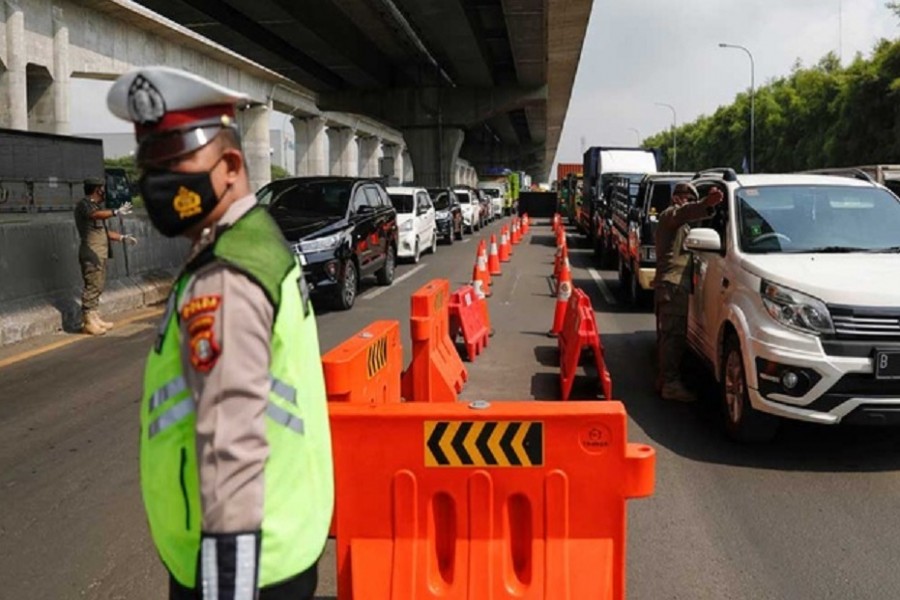Indonesia began imposing a previously announced ban on domestic travel on Thursday as it sought to contain the spread of the coronavirus during the Eid-ul-Fitr celebrations, when millions normally travel to mark the end of the Islamic fasting month.
Police officers were deployed across the capital city of Jakarta on Thursday to check documents and prevent travellers without special permission from leaving the city. They were enforcing a ban on travel by air, land, sea, and rail announced in April which is due to be in place between May 6-17.
Millions of people in the world’s largest Muslim-majority nation traditionally “mudik” or return home to visit their families for the celebrations.
But senior health officials have expressed concern about the emergence of new and more virulent coronavirus mutations across Indonesia, including two cases this week of the B.1.617 variant, which was first identified in India late last year and is ravaging the country.
Indonesia has seen the highest number of coronavirus cases and deaths in Southeast Asia.
Despite the risks, some people still tried to dodge the rules early on Thursday, with police saying on Twitter that several individuals had tried to leave the capital city by hiding out on the back of a vegetable truck.
"I will still try to return home because this has become a tradition even though we have not gone home for two years already," said 44-year old Basuki Riyanto, who was contemplating how to get to Central Java province on Thursday.
"I will try to go ahead regardless of the conditions if there is a closure."
Indonesia has reported a total of 1,691,658 confirmed coronavirus cases and 46,349 COVID-19 deaths.
Earlier this week, the country's health minister said the first two cases of the Indian variant had been identified in Jakarta. Some 13 cases of the B.117 variant first detected in the United Kingdom were previously discovered in the country.
The risk of a spike in COVID-19 infections is weighing on Indonesia's economic outlook this year. Household consumption, the biggest component in the country's gross domestic product (GDP), shrank in the first quarter of 2021.
Southeast Asia's biggest economy slumped 0.74 per cent year-on-year in the January-March period, contracting for a fourth consecutive quarter, official data showed on Wednesday.


